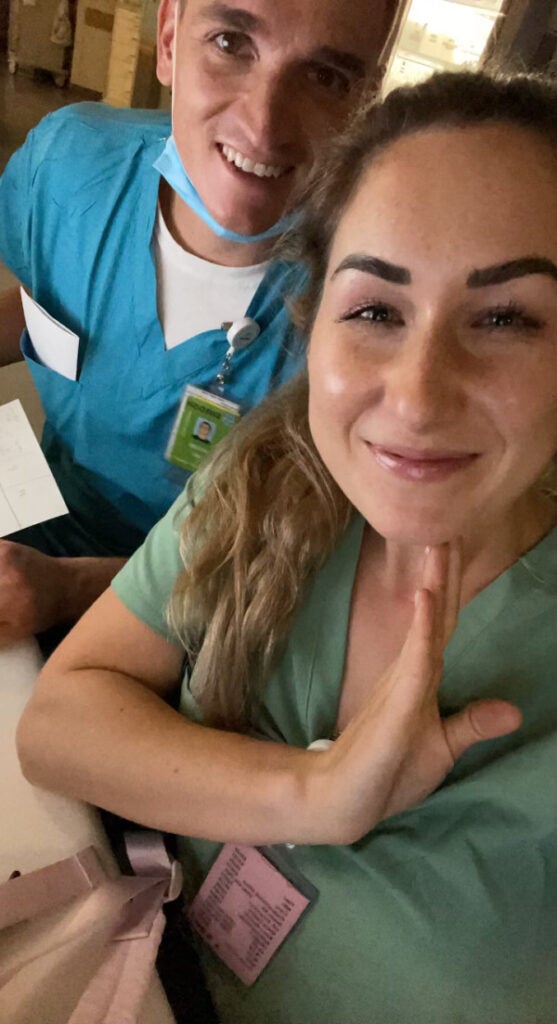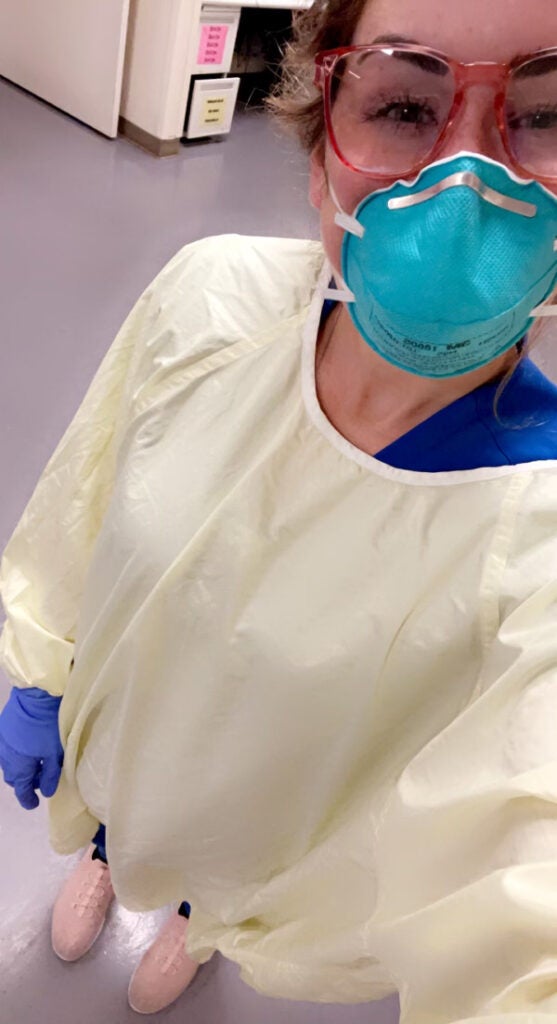Shortage of nurses becoming an issue in Indiana
INDIANAPOLIS (WISH) – A shortage of nurses is becoming a growing issue across the country and in Indiana, as hospitals continue to see more COVID-19 patients with the Delta surge.
The Indiana State Nursing Association said there are several reasons more health care workers are leaving their full-time positions. Nurses are burnt out from the pandemic, a large portion are nurses of retirement age, and due to pay, many health care workers are leaving for travel positions.
It is a trend some health care workers said could impact patient safety.
“We don’t want to be burnt out, crying in the bathroom, calling our families saying ‘I can’t keep doing this.’ That’s not how you treat your heroes of this pandemic,” said Lexi Morey.

Morey is a registered nurse from Indiana. She and her boyfriend, Jacob LeSage – who is a respiratory therapist and whose father is an employee at WISH-TV, both used to work at IU Health Methodist Hospital in Indianapolis when the pandemic started.
“So, there is a shortage of nurses being paid enough. There is a shortage of nurses being treated right, given the appropriate protective equipment,” said Morey. “We are not getting paid enough to be treated the way we are being treated at the bedside.”
Now, the couple works for AYA Healthcare, a travel health care company. Currently, they are caring for patients in Washington, but travel across the country wherever they’re needed for short periods of time.
“So, we’re getting paid a higher rate every week instead of a lower rate every other week,” said Lesage. “So, that is a large incentive for people to get out, to start getting paid what they believe they are worth.”
The money is sometimes double what the health care workers used to make as full-time hospital staff. The larger pay rates are even being seen if they’re hired as travel employees within in Indiana.
“I could drive a little bit farther and make, maybe, three times as much as I was making at a different job,” said Morey.
“It has really become a wage war, to be honest,” said Emily Sego, president of the Indiana State Nurses Association.
Sego said the higher pay to travel is part of the reason Hoosiers in health care are leaving full-time jobs. However, money alone isn’t convincing all nurses to stay working in hospitals.
“The nurses are exhausted. They are tired. Mentally drained,” said Sego. “We have had a lot of phone calls in regards to mental health and issues with PTSD. So, this is a long-term problem, it won’t go away. It is going to be here for a while.”
Sego said 10 years ago, due to age, they expected a lot of nurses to be retiring in 2020. Then COVID-19 hit and things just got worse.
“People leaving earlier than anticipated due to retirement and then also with, you know, staff burnout and nurses deciding to take a different career path or joining a travel agency – work from home. It has really created this larger staffing shortage than we had ever anticipated,” said Sego.

These are all factors that health care workers said can impact patients. Sego said while there are plenty of open beds in Indiana hospitals, there have been times patients have been diverted due to a lack of staffing. Plus, she points to the fact that Indiana has no set patient-to-nurse ratio.
“Obviously, safety is always a risk when you don’t have enough staff and we take that very seriously,” said Sego.
“I was taking care of four patients to one of me, originally. And then they changed us to a team nursing model, so it is like two nurses, 10 patients,” said Morey.
IU Health said in an email that “Like other hospitals, IU Health is facing staffing shortages, but our hospital and outpatient units are staffed and running.”
Community Health Network said in an email that:
the pandemic has made all of us rethink our priorities, and caregivers are no exception. We know there has been a shift in recent months toward caregivers leaving for personal reasons rather than traditional reasons such as pay or hours. But even before the pandemic, the demand for nurses outpaced the supply. We have over time developed relationships with area high schools and colleges to create a diverse workforce pipeline. We have also incorporated signing bonuses for nurses as a recruiting tool. We have a culture of collaboration that we think is attractive to those seeking a career in medicine and nursing.
More hospitals are offering increased pay incentives, such as signing bonuses, to motivate healthcare workers to stay. However, Sego said money is not the only answer.
“You can throw lots of money at nurses right now, but they are so tired and so exhausted that the money isn’t even bringing them in for extra shifts,” said Sego.
The Indiana State Nursing Association said fewer nurses are going into the workforce as well. Plus, with COVID-19, a lot of students have missed out on hands-on learning. Therefore, as new nurses are hired out of school, their onboarding is taking longer than it used to prior to the pandemic.
So, what is the solution to this nursing shortage? Sego said hospitals will have to think outside the box and utilize more virtual options. In the meantime, health care heroes plan to keep saving lives but hope for a solution before it’s too late.
“At the end of the day, patients don’t go home if we don’t do our job well,” said Lesage.